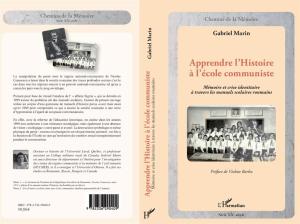Teaching History at the Communist School
Memory and Identity Crisis through the Romanian History Textbooks
This book proposes a double analysis linking the illness of collective memory, the deontology and social rule of historians as well as the deficit or the tardiness of historical critics as academic approach, during the past six decades.
A current analysis of the Eastern European societies recently released from communist regimes fifteen years ago, offers to the historian “du temps présent” a very dilemmatic diagnosis: the crisis of national identity is manifested by « compulsory memory », the reactive manifestation of melancholic sentiments for a significant part of Eastern-European people, especially the elderly. Of course the majority of the population expresses disapproval of the communist past. However, how do we explain today in Romania, for instance, collective nostalgia for communism and especially for Ceausescu’s leadership after four decades of political terror and persecution, after decades of famine, after social and economic constraints? For many Romanians, national identity crises articulate this resurgence of “happy memory” (“mémoire heureuse” chez Paul Ricoeur) of the recent communist past.
Provoked by the new political context of the fall of Berlin wall, the reinventing process of identities depends today on the collective capacity to understanding the burden moments of the recent past. For this reason in post-Ceausescu Romania, one of the most important steps has been the reform of the educational system, especially the rewriting of scholarly national history textbooks. With financial European Union assistance, new alternatives or optional history textbooks have been elaborated and published here since 1996. Expected by teachers as well as by pupils, the new textbooks have replaced the ancient unique and boring scholar history textbook, inherited from the communist period. In 1999, one of these scholarly textbooks triggered a great public scandal. Denounced by some deputies of Romanian Parliament as “antinational”, some politicians as well as some intellectuals and journalists accuse the authors of denigrating national values by minimising canonical figures of the past.
The scandal appears to me exemplary for the illnesses of collective memory after a communism regime. It is a visible symptom of manipulation of memory during the totalitarian regimes. The communist nostalgia and the scandal of this history textbook represent the first registry of my presentation. The articulation between these two mnemonic phenomena brings the discussion to the question of the politics of memory promoted during the totalitarian educational system and a new European politics of memory in Eastern-European countries today.
By a double narrative analysis – public discourse and narrative history textbooks – the book tries to investigate the post-communist “happy memory”(“memoire heureuse” – in Paul Ricœur`s words) in post-Ceausescu Romania. Thus, I will exam the articulation between the fascist and communist nostalgia through the recent political scandals. I am referring here to the Romanian Holocaust “negationism” question (and at the same time as to the mnemonic revival of the historical figures linked to the national-orthodoxy ideology) as well as to the melancholic representations of the canonical glorious national past built by the national-communist propaganda. The second registry is a brief examination of the post-communist historiography. A summary analysis of it reveals some significant changes but also many discursive inertias (“a memory” of the canonical writing). For the examination of the collective memory my sources will be mainly the Romanian press while for the historiography I will use new history scholarly textbooks and a new edition of Romanian History published not many years ago by RomanianAcademy of Science.
The articulation between these two mnemonic registries of collective phenomena brings the discussion to the question of the politics of memory promoted during the totalitarian periods and a new European politics of memory and the reinventing of national identity in Eastern-European countries today.